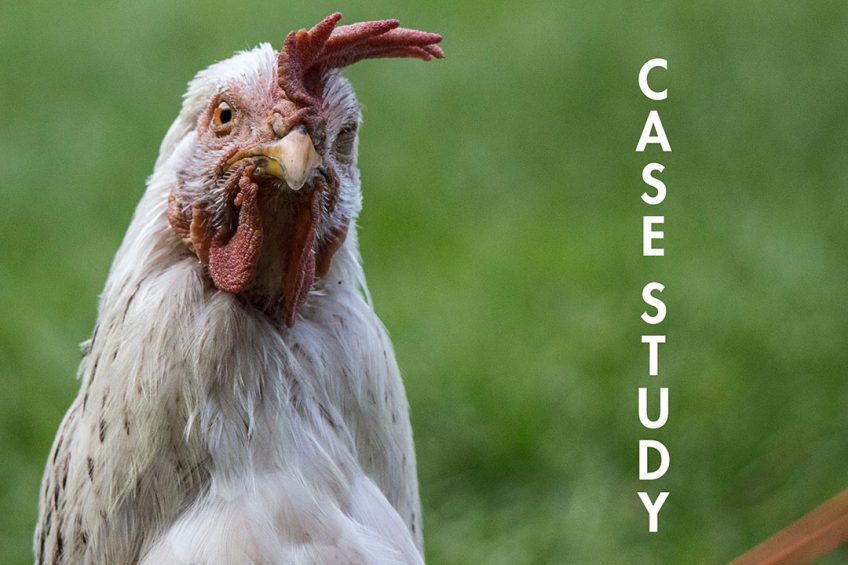Case study: Chicken remains a luxury in Senegal

Domestically produced chicken meat is considered a luxury item by the majority in Senegal, where per capita consumption is just 4-5kg per year. In 2019, it is estimated that the West African country raised 50 million imported breed broilers and 34 million local chicken breeds. However, poultry production did grow by 25% from 2016 to 2019.
Genetics are imported for both broiler and table egg production, which mostly constitutes hatching eggs, although day-old chicks are also imported. Local chicken breeds are reportedly less prone to diseases and have adapted to the arid and humid climate of Western Africa. However, these local breeds are raised in informal, backyard operations primarily for household consumption (mainly for table eggs). These birds are not typically vaccinated and usually roam free on a property or in the village.
Import ban on uncooked chicken
Since Senegal implemented the ban on imported, uncooked chicken meat in 2005, the production of local breeds has dropped in favour of imported breeds because they have a lower feed conversion ratio.
From 2016 to 2019, the number of imported broilers increased from 40 to 50 million birds. Assuming a mortality rate of 5% and an average weight of 1.5kg, this would equal about 71,000 MT of chicken meat. There are reportedly only 5 or 6 large commercial farms raising around 10,000 birds or more (one farm reportedly raises as many as 120,000 birds) every 45-60 days in enclosed sheds with air conditioning. Otherwise, most poultry farms are much smaller and raise between 1,000 and 2,000 birds in open air sheds every 45 days.
Chicken prices
In the country’s capital, Dakar, the price for a whole, freshly slaughtered chicken (cleaned but can include giblets) at open air markets ranges between 1,500 and 2,000 CFA francs (US$2.54 to US$3.39) for 1.5 to 2kg. In modern retail outlets, the retail price ranges from 2,200 to 3,000 CFA francs (US$3.73 to US$5.08) for a whole bird that weighs between 1.5 and 2kg; the whole bird is usually frozen although chilled chicken meat is sometimes available. Local breeds are more expensive, provide less meat, and can cost 3,000 CFA francs (US$5.08) or more per 1.5kg.
Layer chickens and table egg production
Regarding table egg production, 60% of all table eggs are produced by commercial farms. In 2017, Senegal reportedly produced around 850 million table eggs.
For 2019, Senegalese layer operations had the capacity to raise 5 million chickens, and in 2017, it is noted that Senegal produced about 850 million table eggs, of which around 60% are produced by commercial farms and sold in urban markets. The remaining 40% are from smaller farms or informal operations.
In 2016, 3 commercial farms competed for around 82% of the market. Regarding commercial table egg production, larger farming operations can raise more than 300,000 layers. Sources noted that in order to produce 10,300 eggs per day, commercial operations purchase 15 MT of feed every 10 days. Table eggs are sold in 24-count egg cartons at a wholesale price of 1,400 to 1,500 CFA francs (US$2.37 to US$2.54) per carton for medium-sized eggs and 1,600 to 2,000 CFA francs (US$2.71 to US$3.39) per carton for large eggs.
Imported chicken genetics support the domestic poultry industry
Imported hatching eggs or day-old chicks are primarily purchased by large integrated agribusinesses that raise the parent stock and sell day-old chicks to contracted farmers. There is no local grandparent stock. For broilers, Cobb 500 and Hubbard constitute 70% and 25%, respectively, of all imported breeds, and come from mainly South Africa and India. Ross constitutes the remaining 5% and sourced from Brazil, France, and Belgium. For layer chickens, Hyline, Babcock, and Novogen are sourced mainly from the Netherlands and France.
Poultry feed
Senegal has about 8 feed millers of which 4 account for most of the market. In 2016, the Ministry of Livestock estimated that the poultry industry purchased 269,290 MT of feed, or about 73.79 billion CFA francs (US$126 million). Feed mills purchase imported ingredients such as corn and soybean meal, as well as local products such as peanut meal, amino acid, vitamins, fish meal, and calcium to produce broiler and layer chicken feed. Depending on the size of the operation, mills can produce 50 to 800 MT of feed per day.
The wholesale price for feed is about 12,000 CFA francs (US$20.33) per 50 kg. The retail price for feed ranges between 12,800 and 14,500 CFA francs (US$21.69 and US$24.57) per 50 kg of broiler feed and 12,200 and 13,000 CFA francs (US$20.67 and US$22.30) per 50 kg of layer feed.
This article is based on the USDA’s GAIN report, Poultry and Poultry Products Annual 2019 (Senegal).












